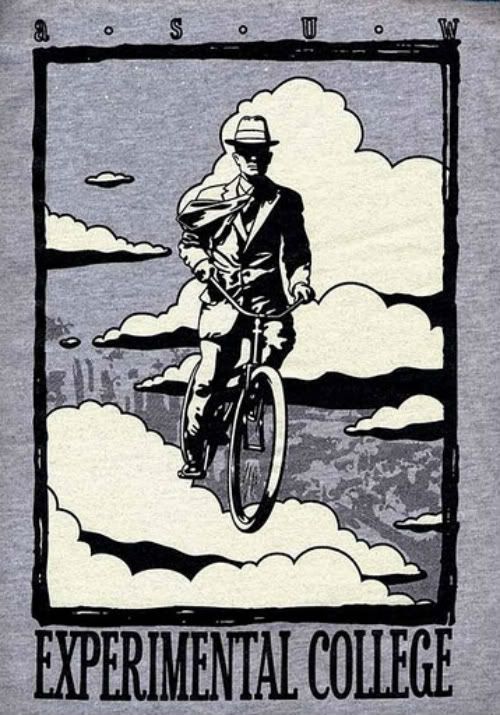As an instructor at Cal State Fullerton, I am often frustrated by students' lack of enthusiasm for what they are learning. Many students at Cal State view their education as, primarily, an economic transaction. They pay their tuition, earn their grades, get a degree, get a high-paying job. Done.
What often gets lost in this transaction is the joy of learning, of education as an end in itself. As a teacher, I see my purpose as helping students see that reading and writing and learning are ways to deepen and expand themselves as human beings. I tell my students, "Your college years are precious. At no other time in your life will you have this kind of freedom to explore, to learn, to find your path in life."
The "economic transaction" view of education was not always the norm at CSUF. In the 1960s, amid all the social movements happening on campus, students and faculty established the Experimental College, a tuition-free, gradeless, progressive satellite of the "regular" curriculum.
Former professor Lawrence de Graaf writes, "The Experimental College epitomized a combination of the idealism and disdain for convention prevalent in the 'counter culture' of the late 1960s. The college intended to prepare graduates to organize the poor, work with peace and ecology movements, and start free schools and communes." Students graduated when they were ready, when they "discovered how to relate constructively, creatively, joyfully, to other people."
By 1970, the Experimental College offered 24 classes to 447 students. Unfortunately, as the revolutionary spirit of the 1960s began to dissolve into the disillusioned haze of the 1970s, students lost interest and the Experimental College ended in 1974.
Perhaps someday soon, when the culture is ready again, the Experimental College will re-emerge at Cal State Fullerton.
Source: The Fullerton Way: 50 Years of Memories at Cal State Fullerton by Lawrence de Graaf

